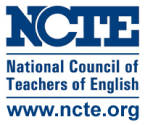-
About
- About Listly
- Community & Support
- Howto
- Chrome Extension
- Bookmarklet
- WordPress Plugin
- Listly Premium
- Privacy
- Terms
- DMCA Copyright
- © 2010-2025 Boomy Labs

 Wesley Fryer
Wesley Fryer
Listly by Wesley Fryer
Good articles and ideas on reforming high stakes testing in our schools

When asked about a fresh new policy proposal for the Republican party on "Fox News Sunday," Republican Louisiana Gov. Bobby Jindal pushed education reform, a cause he has championed in his own state. Jindal, chairman of the Republican Governors Association, was lauding the association's "America Next" program, saying the Republican...

By LLOYD SNOW on Aug 16, 2013, at 2:23 AM Updated on 8/16/13 at 3:39 AM Snow I think Diane Ravitch gets it right in her latest book "Reign of Error: The Hoax of the Privatization Movement and the Danger to America's Public Schools."

This article first appeared on Salon.com. In the great American debate over education, the education and technology corporations, bankrolled politicians and activist-profiteers who collectively comprise the so-called "reform" movement base their arguments on one central premise: that America should expect public schools to produce world-class academic achievement regardless of the negative forces bearing down on a school's particular students.

In the past few months, the North Carolina legislature has pushed forward two bills (see here and here) designed to change the way that teachers are held accountable. While the bills are different in a few important ways, they share a common trait: Neither are likely to improve education -- and both are likely to hurt kids -- because they are built on three fundamentally flawed assumptions about what works in schools.

This article by Fullan was sent to me by my foundation's Education Adviser and it is a great- yet short- explanation of 'drivers' that don't work in creating lasting change in schools against those that do. He uses current US and Australian policy to illustrate his points and the article is blunt in its message.

Partnership for Assessment of Readiness for College and Careers (PARCC) is a consortium of states that are developing exams to assess the achievement of students under Common Core State Standards. In the previous post, I discussed what Common Core meant to Oklahoma educators.

Here's a powerful piece about how an award-winning principal went from being a Common Core supporter to an opponent. This was written by Carol Burris, principal of South Side High School in New York. She was named the 2010 New York State Outstanding Educator by the School Administrators Association of New York State.

CAMBRIDGE, Mass. IN April 1983, a federal commission warned in a famous report, " A Nation at Risk," that American education was a "rising tide of mediocrity." The alarm it sounded about declining competitiveness touched off a tidal wave of reforms: state standards, charter schools, alternative teacher-certification programs, more money, more test-based "accountability" and, since 2001, two big federal programs, No Child Left Behind and Race to the Top.

Principal Carol Burris' recent post on why she is no longer a fan of the Common Core stirred wide interest and lively debate - enough that Carol decided to follow up with a piece that addresses some of the questions voiced in the comments following the piece, as well as in the emails she received after its posting.

A @newsok editorial about Spring 2013 online testing irregularities. Reflects overall support for current edreform efforts.

Former Florida governor Jeb Bush believes in education. He believes that education should follow a business model, that education is a lucrative market and should be privatized. And corporations ready to profit from the corporate reformer declaration that "public education is failing" are in no short supply.

May 28, 2013 Dear Council Members, Ever since NCTE provided a series of thoughtful critiques of the draft ELA Common Core Standards documents starting in 2009, the Council has been consistent in opposing implementation measures that would reduce teachers' flexibility in designing instruction, choosing materials, or using appropriate assessments to engage learners and improve equity across all classrooms. It is clear that rushing into the next generation of high stakes assessments, long before implementation of significant improvements in the organizational conditions needed to advance learning, is a recipe for disaster.
